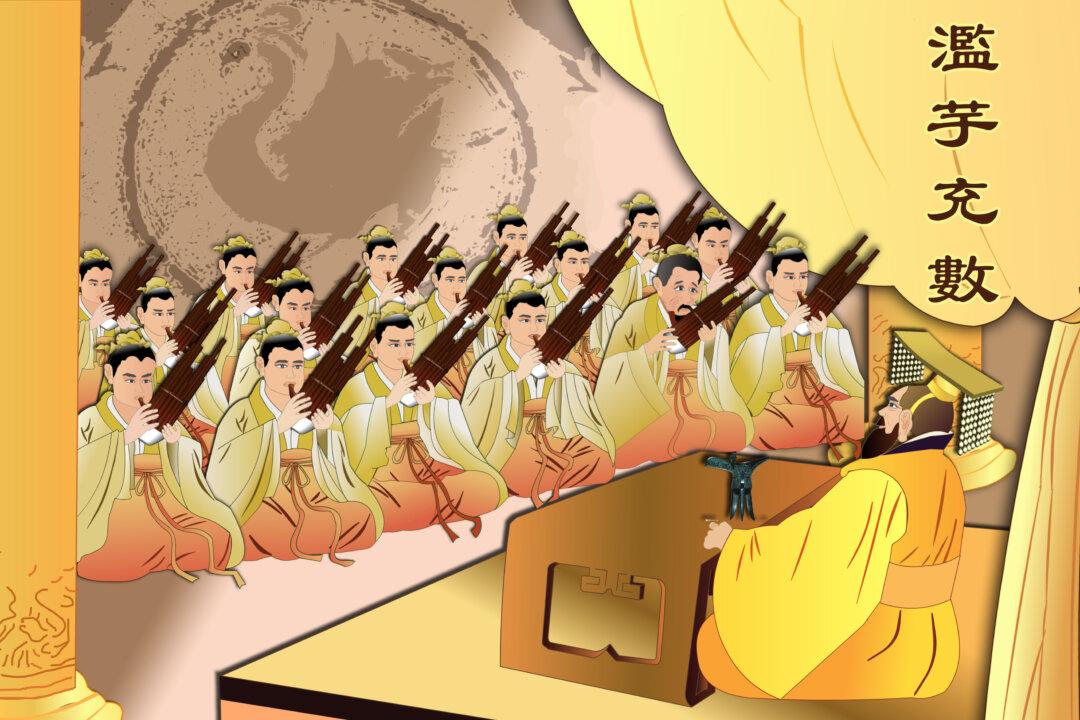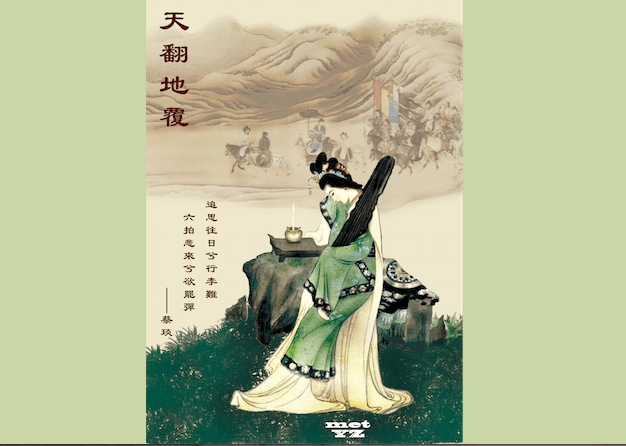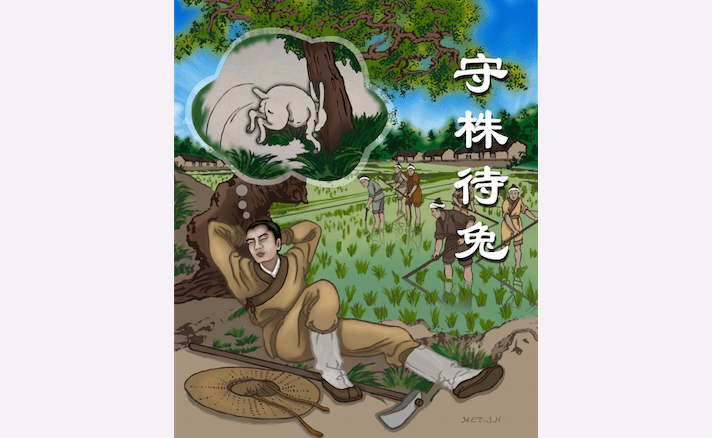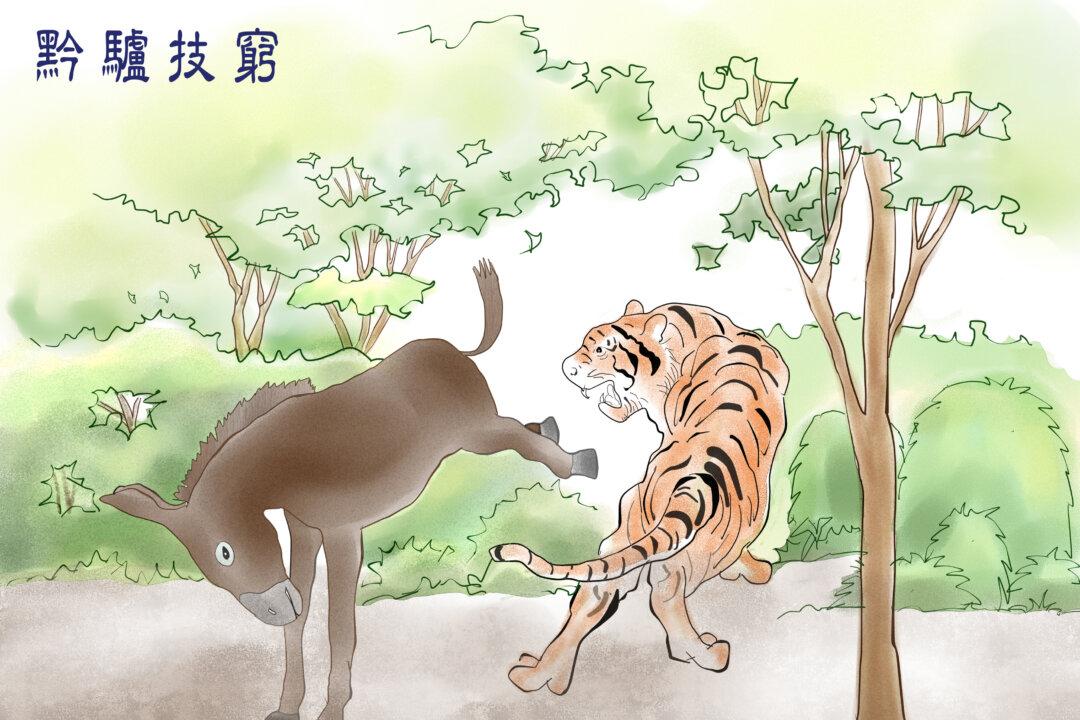The Chinese idiom 濫竽充數 (làn yú chōng shù), literally “pretend to play the yu in order to make up the number,” is often translated as “be there just to make up the number.”
The idiom originates from a story about a man named Nanguo from the book “Han Feizi”(1) (韓非子) written at the end of the Warring States Period (475–221 B.C.).
As the story goes, the king of the state of Qi at the time was very fond of listening to the yu, a wind instrument consisting of multiple bamboo pipes. The king especially enjoyed listening to a large orchestra of 300 musicians playing grand music on the yu. These palace musicians were paid handsomely.
Nanguo learned about the king’s generosity and managed to become a member of the royal orchestra, despite not knowing how to play the yu at all.
Each time the orchestra played for the king, Nanguo simply sat with the other musicians and pretended to play, making not a sound. No one realized his deception.
Several years later, the king passed away and his son ascended the throne. The new king also loved to listen to beautiful music played on the yu, but he preferred solo players to large orchestras, so he arranged to have the musicians take turns to play for him individually.
Nanguo was very frightened when he heard the news. To avoid being found out, he hastily packed his bags and fled the palace.
Later, the phrase “be there just to make up the number” became an idiom that describes those who disguise themselves among professionals in a certain field but in fact have no qualifications—they are only in their posts to fill a vacancy.
The idiom is used to ridicule someone lacking talent and ability. When it is used to refer to oneself, it is simply to express one’s modesty.
Note:
1. The book contains 55 chapters detailing the political philosophy of Han Fei (ca. 281–233 B.C.), who was one of the early legalist philosophers in China. It is valuable for its abundance of anecdotes about ancient China of the period.
Be There Just to Make Up the Number (濫竽充數)
The Chinese idiom 濫竽充數 (làn yú chōng shù), literally “pretend to play the yu in order to make up the number,” is often translated as “be there just to make up the number.”

A man pretends to be a musician when, in fact, he does not know how to play his instrument and is presenting himself as something other than what he truly is.
Credit: Catherine Chang/Epoch Times
|Updated:



